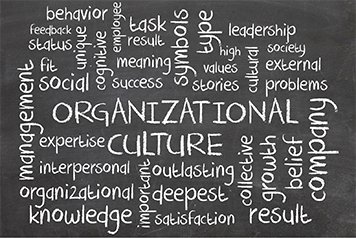A couple of months ago, I had the privilege of participating in an online coaching/mentor training session with Annette Gray from Annette Gray Consulting. The workshop together with a couple of Harvard Business Review articles I was reading at the time, opened my eyes to what is a simple and obvious way to grow ourselves as leaders and to grow everyone we have the privilege to connect with through personal and professional opportunities. I was obviously aware of the power of conversations, but hadn’t fully recognised the potential power of intentional professional conversations at all levels in a school.
At this moment in time, our schools are experiencing critical staff shortages, a high level of fatigue and the reality of the ‘Great Resignation’. I wonder what school leadership may look like if we build a culture where professional conversations become an integral component of day to day activities within a school day!
Conversation is the fundamental unit of change; if you change the conversation, you change everything that surrounds it."
Paul Z. Jackson and Janine Waldman (2011)
This quote from Jackson and Waldman provides a powerful construct to effect change in a school. Leadership development is complex and continues for a lifetime. In reality, our leadership capacity develops one small step forward at a time and from my experience, there are a few backward steps along the way – that’s how we learn!
Pause for a moment and reflect on the systems and processes in your school designed to support and develop your middle leaders. In the main, our middle managers are Millennials and Gen X-ers (age 26-57) and in the case of females, there are probably more Gen X-ers essentially because men in general have been freer to advance their careers earlier, particularly in jobs that require long hours of work to advance.
In a Gallup article: ‘It’s the Manager’, Jim Clifton and Jim Harter’s research concludes that the problem with developing leaders doesn’t reside in processes, but in failures to maximise human potential. In Christian education, we may paraphrase this as a failure to develop the capacity of leaders and aspiring leaders to lead with confidence and humility to be all that God has created them to be.
How do you assess the performance and wellbeing of leaders in your school? Is it through annual employee evaluation and rating processes? According to Gallup, there’s no evidence anywhere in the world, in any institution of management science, that existing employee evaluation and rating processes are effective. I was a little surprised to read this, but when I thought about it, I knew intuitively that this is right! Clifton and Harter recommend ‘immediately implementing an authentic organic growth strategy — one built on a fully transformed workplace culture of high employee development with great managers’. If only it was so easy!
Mature and experienced leaders are sometimes confronted by Millennials and Generation Z (Age 22-41) who expect leadership portfolios within 2-3 years of graduating, but perhaps we can redirect the conversations and better harness this God-given energy. Millennials and Generation Z don’t want ‘command and control’ type bosses, they want coaches/team leaders who value them as individuals and employees, and help build their strengths and genuinely care about their wellbeing. Generation Z and some Millennials have only ever known communication through texting and video conversations which provide immediate feedback. They don’t want annual reviews, they want ongoing conversations and constructive feedback!

Annual reviews on their own have never worked. To develop next generation leaders who love their jobs, the workplace much embrace a different culture of leadership development; one that meets the needs of aspiring and new leaders through regular communication and feedback. Millennials and Generation Z, in fact ‘everyone’, wants a boss who helps them to maximise their God-given strengths; who understand their weaknesses, but doesn’t fixate on them. This is where a ‘strengths-based culture’ has the potential to transform the performance of your school community.
Weaknesses never develop into strengths, while strengths develop infinitely!"
Clifton and Harter
Unsurprisingly, Clifton and Harter from Gallup state that ‘people with ‘great’ jobs have very different life outcomes, they inspire teams, solve problems instead of creating them, volunteer in their community, have far better health and wellbeing and have fewer workplace accidents. As a result, they provide extraordinary value to organizations and societies.’
It follows therefore, that when team inspiration grows in schools, students flourish! Families will want to send their children to your school, revenue increases, student achievement increases in all areas, investment in capital improvements occurs and the school’s reputation grows strong. A micro picture of ‘heaven on earth’ for any Board, Principal or Business Manager!
Irrespective of our role within a school, we all wonder from time to time whether the school values our personal strengths and contribution? When we feel valued, we thrive, especially in challenging circumstances and especially when we are given the chance to do what we do best.

It goes without saying, that managers at all levels make or break the school culture; only our best managers can implement the culture we want. As I reflect on my annual performance reviews over a very long career (which by the way, did not occur annually until the last 10 years), I can remember ‘warm, fuzzy conversations’ which made me feel good, but usually without substantial or helpful feedback to move either myself or the school forward. Often some of the ‘thought bubbles’ released during the review left me feeling overwhelmed - how could I add this ‘idea’ to my average 60+ hour week? However, I can think of numerous inspiring conversations which occurred both within the school and through active engagement in professional networks, but sat outside the annual review process, that enabled me to step up.
To build the culture we want in our schools, we need to recognise that the single most important factor in building a successful team is the quality of the manager and if our employees want a coach, not a boss, then we need to reposition our managers and leaders to become coaches, including ourselves. Only your best managers can implement the culture you want .

Gallup research found that:
1. Managers — through their strengths, their engagement and how they work with their teams every day — account for 70% of the variance in team engagement.
2. Employees who receive feedback from their manager daily, or at least once a week, are three times more likely to be engaged than those who receive feedback once a year or less
3. Feedback needs to be meaningful - based on an understanding of the individual’s strengths
4. Conversations vary from daily Quick Connects to recurring Check-ins to Developmental Coaching.
5. Leadership development programs should be highly individualized and strengths-based with an end goal of creating high self-awareness — targeted to the specific expectations for the role.
The Great Resignation has emerged during the pandemic, fueled mostly by the desire for “Career growth opportunities”. Imagine if our managers engaged in regular and informal conversations with their team to learn and understand the strengths and aspirations of their individual team members — not merely an agenda item to discuss during the team member’s performance review. People change in small steps - progressing one step up at a time. Managers can help to shape the role of each team member around their strengths by working beside them, not working on them. The same principle applies to an individual teacher or administrator who may not aspire to be a manager, but is an excellent practitioner.
People don’t come as empty vessels, they have a breadth of experience and background, so allow a conversation to flow organically, giving the person time to think and answer in a considered way.
Meaningful conversations may flow something like:
- What are your recent successes? How did your role make a difference?
- What is something you would like to achieve in the next 2-3 months.
- What difference would it make if you …. (rephrase their response) achieve this goal?
- You have obviously thought about this already and what you have described is 10/10 – where on a scale of 1-10, are you now?
- What got you on the scale of X/10 and what do you already have in place?
- If you were to move up 1 point on the scale, what would be the signs of progress?
- What might be the first step in moving up 1 point?
- Have you done this previously? What worked?
- What’s been useful from this conversation?
W.A.I.T. - Why Am I Talking?
Resist the temptation to give advice: WAIT - Stay curious longer! Give the person the space to talk, and for you to find out what they already know. They already have resources and strengths, so help them uncover that. This approach slows the conversation down and takes it to a deeper level. And if they don’t have any experience, then advice can be given, but advice tends to land better if it is offered in the 3rd person!
Begin small - Invest in executive leaders and build the culture from the top down – changing a culture will take time maybe years, but the fruit of this investment in your teams will transform the performance of your school at every level and you, as the leader, won’t feel as overwhelmed by the complexity of school leadership. Imagine the cultural change you would see in your school as you and your executives and middle managers engage in numerous conversations of this type across the whole school every day. Undoubtedly, this will also result in sending out well equipped leaders into other areas of Christian education.
As Christian leaders, called by God to lead, we are not alone:
If any of you lacks wisdom, you should ask God, who gives generously to all without finding fault, and it will be given to you."
James 1:5
Leadership development builds on professional conversations that can and do take place all the time among teachers, middle leaders, administrators and students. Let’s intentionally enhance these conversations to build a flourishing school community where middle leaders are focused on improving performance in their teams, and Principals and Executive leaders can focus on the vision, mission and strategic direction of the school.
So, we return to the main idea:
Conversation is the fundamental unit of change; if you change the conversation, you change everything that surrounds it."
Paul Z. Jackson and Janine Waldman (2011)